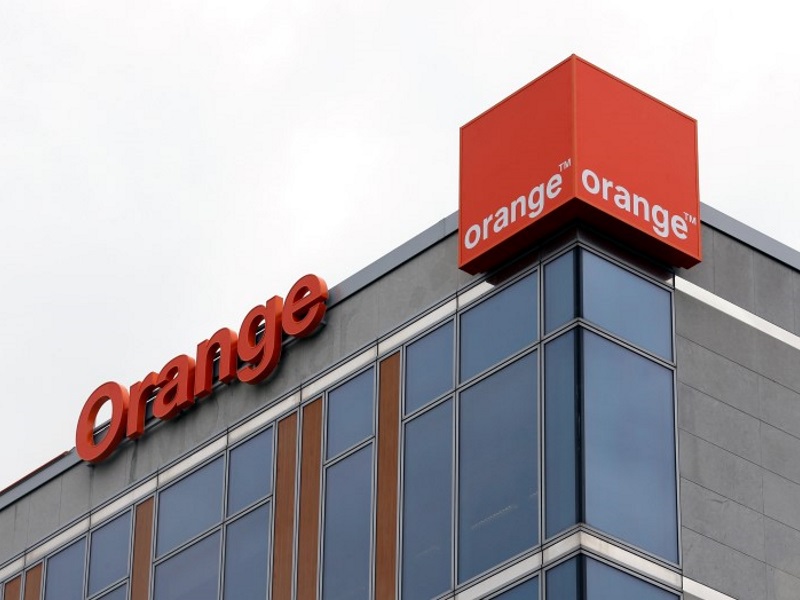- Home
- Internet
- Internet Features
- EU Regulators Take Tough Approach to Net Neutrality
EU Regulators Take Tough Approach to Net Neutrality

The European Union last year adopted its first ever net neutrality rules which require telecoms operators such as Orange, Deutsche Telekom and Telecom Italia to treat all Internet traffic equally.
BEREC, the body comprising the EU's 28 telecoms regulators, has produced a set of draft guidelines on implementing the net neutrality rules, which will be presented on Monday and adopted in August after feedback from interested parties.
The telecoms industry is seeking to increase revenues from specialised services such as connectivity for driverless cars and Internet-connected devices to offset declining turnover from its traditional telephony business.
But net neutrality advocates worry about creating a two-speed Internet, benefiting only companies with deep pockets that can pay for faster transmission of their services.
The guidelines seen by Reuters say operators will only be able to offer such services over dedicated network capacity if it is "objectively required" and only if it does not negatively affect the Internet.
National regulatory authorities (NRAs) will have to verify whether an application needs to be delivered separately from the rest of the Internet to guarantee a committed level of quality, or "whether they are instead set up in order to circumvent the provisions regarding traffic management", the guidelines say.
Telecoms operators had lobbied strongly against strict rules forbidding them from prioritising some types of data over others, arguing that they need to be able to dedicate network capacity to services requiring a guaranteed level of quality, such as facilitating the exchange of medical data between patients and health professionals.
Services such as high-quality voice calling on mobile networks, live television delivered over the Internet and remote surgery will likely be allowed as specialised services, the document says.
"Given that we do not know what specialised services may emerge in the future, NRAs should assess whether a service qualifies as a specialised service on a case-by-case basis," it adds.
One industry source said that while it was a positive sign that BEREC had not created a list of what can be considered specialised services, the fact that each new application will have to be assessed individually is a source of uncertainty for operators.
"With restrictive guidelines, you can forget 5G and connected cars," said another industry source.
The regulators say that zero-rating - namely where one application, say, Facebook, does not count towards someone's data usage - will be allowed until they hit their data cap.
In other words, the operator will not be able to continue treating Facebook as completely free if the customer has used up the data in his subscription.
© Thomson Reuters 2016
For the latest tech news and reviews, follow Gadgets 360 on X, Facebook, WhatsApp, Threads and Google News. For the latest videos on gadgets and tech, subscribe to our YouTube channel. If you want to know everything about top influencers, follow our in-house Who'sThat360 on Instagram and YouTube.
Related Stories
- Samsung Galaxy Unpacked 2025
- ChatGPT
- Redmi Note 14 Pro+
- iPhone 16
- Apple Vision Pro
- Oneplus 12
- OnePlus Nord CE 3 Lite 5G
- iPhone 13
- Xiaomi 14 Pro
- Oppo Find N3
- Tecno Spark Go (2023)
- Realme V30
- Best Phones Under 25000
- Samsung Galaxy S24 Series
- Cryptocurrency
- iQoo 12
- Samsung Galaxy S24 Ultra
- Giottus
- Samsung Galaxy Z Flip 5
- Apple 'Scary Fast'
- Housefull 5
- GoPro Hero 12 Black Review
- Invincible Season 2
- JioGlass
- HD Ready TV
- Laptop Under 50000
- Smartwatch Under 10000
- Latest Mobile Phones
- Compare Phones
- Redmi Turbo 4
- Vivo Y200+
- Lava Yuva 2 5G
- OnePlus Ace 5
- OnePlus Ace 5 Pro
- Oppo A5 Pro 5G
- Vivo Y29 5G
- Honor Magic 7 RSR Porsche Design
- Asus Zenbook S 14
- MacBook Pro 16-inch (M4 Max, 2024)
- Honor Pad X9 Pro
- Honor Pad V9
- boAt Enigma Gem
- boAt Enigma Daze
- Sony 65 Inches Ultra HD (4K) LED Smart TV (KD-65X74L)
- TCL 55 Inches Ultra HD (4K) LED Smart TV (55C61B)
- Sony PlayStation 5 Pro
- Sony PlayStation 5 Slim Digital Edition
- Blue Star 1.5 Ton 3 Star Inverter Split AC (IC318DNUHC)
- Blue Star 1.5 Ton 3 Star Inverter Split AC (IA318VKU)

















